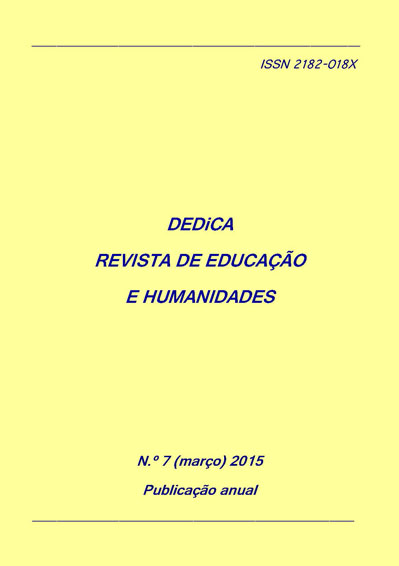Spanish Song and National Identity in Francoist Spain: Manolo Escobar
DOI:
https://doi.org/10.30827/dreh.v0i7.6937Keywords:
Manolo Escobar, nationalism, Spanish song, FrancoistAbstract
It is well know that Franco particularly liked the copla and the "Spanish song" which stimulated the feeling of national identity. Every year, during the commemorations of July 18th (the day of the uprising of the national army) the stars of the moment such as Conchita Piquer, Juanita Reina, Lola Flores, Antonio Amaya, Antonio Molina etc., were invited to interpret the favourite songs of the Generalissimo.
Among the "Spanish song" performers, Manolo Escobar was the most popular singer of the sixties and seventies, in spite of the impact of ye-ye music and The Beatles on the young people. Throughout the sixties his repertoire evolved from the Andalusian song to the Spanish song which refers to Spain and Spanish people in general. From 1963 to 1980, he was the main protagonist of movies, one per year over this period, and his plentiful discography showed his increasing popularity. His songs addressed a simple public, being described himself "as the people’s singer". What was the key of his success? Is there a link between his success and the support of Franco’s regime? And finally, how the Escobar’s songs contributed to a feeling of national pride?
Downloads
References
Alonso, C. (2010). Símbolos y estereotipos nacionales en la música popular española de los años sesenta. En C. Alonso et alii, Creación musical, cultura popular y construcción nacional en la España contemporánea, 205-231. Madrid: ICCMU.
Amorós, A. (1974). Sociología de una canción folklórica española: Manolo Escobar. En F. Botrel; S. Salaün, Creación y Público en la literatura española, 215-237. Madrid: Castalia.
Arce, J. (2010). La feliz infancia del cine musical español. En C. Alonso et alii, Creación musical, cultura popular y construcción nacional en la España contemporánea, 205-231. Madrid: ICCMU.
Blas Vega, J. (1996). La canción española. De la Caramba a Isabel Pantoja. Madrid: Taller el Búcaro.
Figuerola-Ferretti, L. (2008). ¿Dónde queda la España casposa? Consultado en 5/3/ 2012. Disponible en:
http://elduendedelaradio.com/2008/07/01/%C2%BFdonde-queda-la-espana-casposa/
García Escobar, J. G. (1976). Manolo Escobar, Yo soy un hombre del campo. Madrid: Difusión librera.
García Escudero, J. M. (1962). Cine español. Madrid, Barcelona: Rialp.
García Escudero, J. M. (1978). La primera apertura. Diario de un director general. Barcelona: Planeta.
Huerta Floriano, M. Á.; Pérez Morán, E. (2013). La imagen de la España tardofranquista en las películas de Manolo Escobar. Revista Latina de Comunicación Social (2013) 189-216.
Martínez, J. (s.f.). El cine tardofranquista, reflejo de una sociedad. Consultado en 30/10/2013. Disponible en:
http://historiadelpresente.es/sites/default/files/congresos/pdf/37/josefina.pdf.
Muñiz Velázquez, A. (1998). La música en el sistema propagandístico franquista. Historia y Comunicación Social, 3 (1998) 343-363.
Otaola, P. (2008). Oscar Esplá y el nacionalismo musical. Revista de Musicología, 31, 2 (2008) 453-497.
Otaola, P. (2012a). La música pop en la España franquista: rock, beat y moda ye-ye en la primera mitad de los años 60. ILCEA [on line], 16, (2012). Colocado en línea en 4/7/2012. Disponible en: http://ilcea.revues.org. Consultado en 21/5/2013.
Otaola, P. (2012b). Emancipación femenina y música pop en los años 60. De "La chica ye-yé" a "El moreno de mi copla". Sínerís, Revista de Musicología, 5 (octubre 2012) 1-27. Consultado en 28/6/2013. Disponible en: http://www.sineris.es/
Román, M. (1994). Memoria de la copla. La canción española de Conchita Piquer a Isabel Pantoja. Madrid: Alianza Editorial.
Sepúlveda, I. (1996). La eclosión nacionalista: regionalismos, nacionalidades y autonomías. En J. Tusell; A. Soto, Historia de la transición 1975-1986, 409-443. Madrid: Alianza Editorial.
Teruel, G. (2010). La España casposa. Consultado en 5/3/2012. Disponible en: http://inpurisnaturalibus.wordpress.com/2010/08/31/la-espana-casposa/
Vázquez Montalbán, M. (2000). Cancionero general del franquismo. Barcelona: Editorial Crítica.
Villegas, A. (1969). Biografía completa de Manolo Escobar. Madrid: Ibérico Europa de Ediciones.
Zennerts, R. (2008). Por los caminos de España. Programa radiofónico de la Canción Española. Mérida: Diputación de Badajoz.












